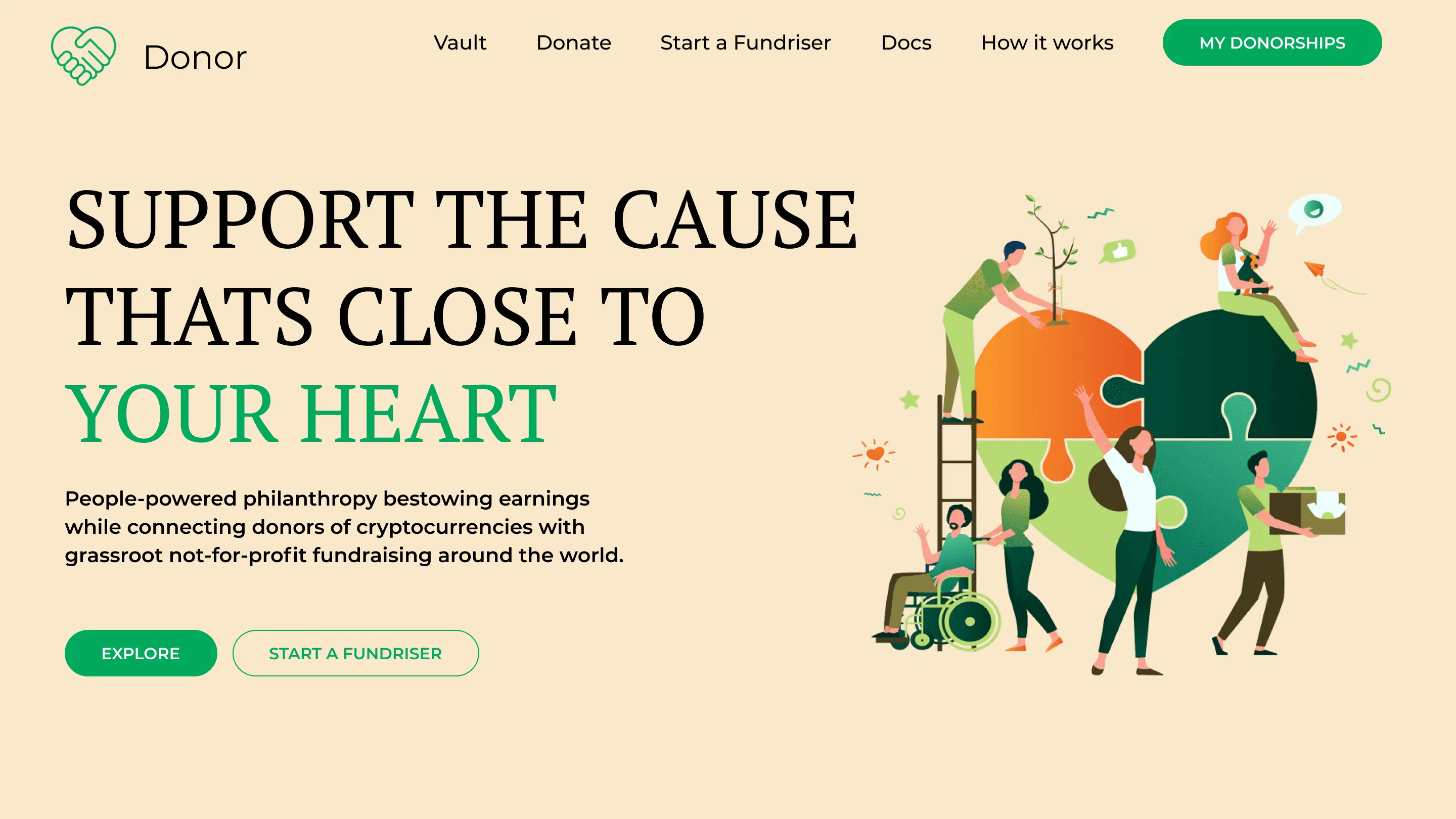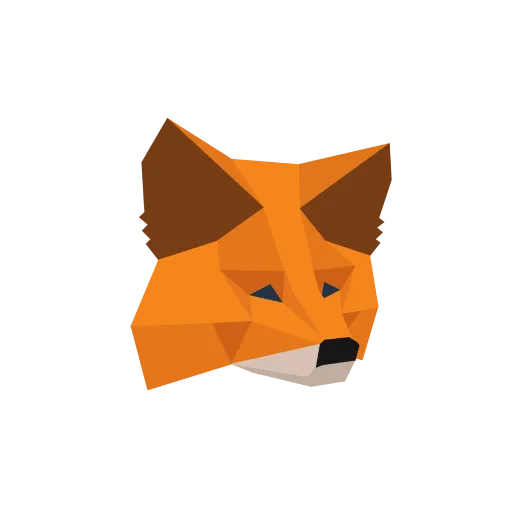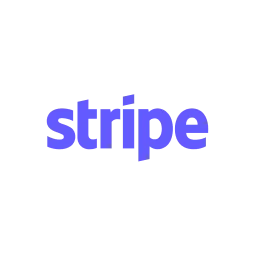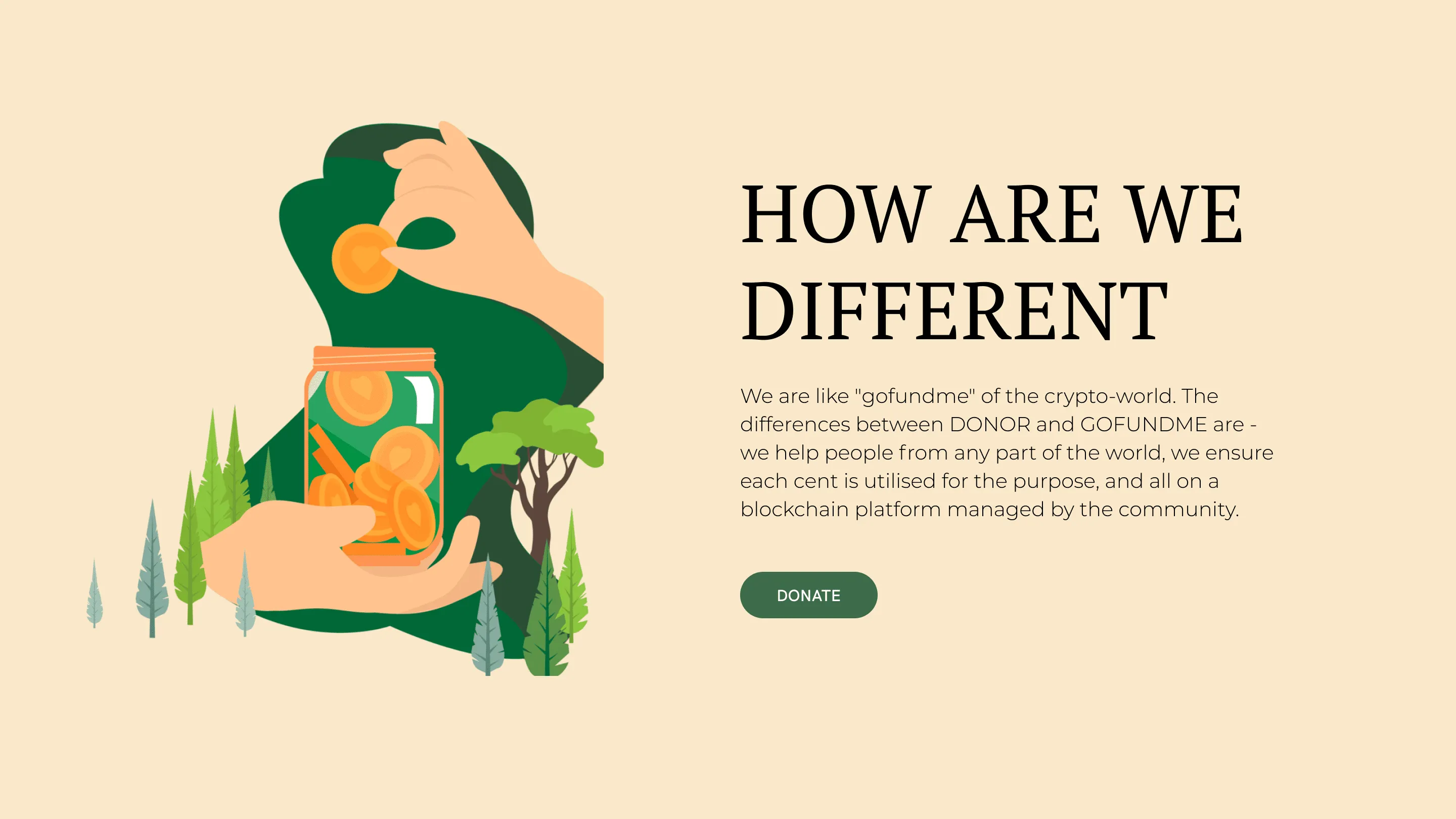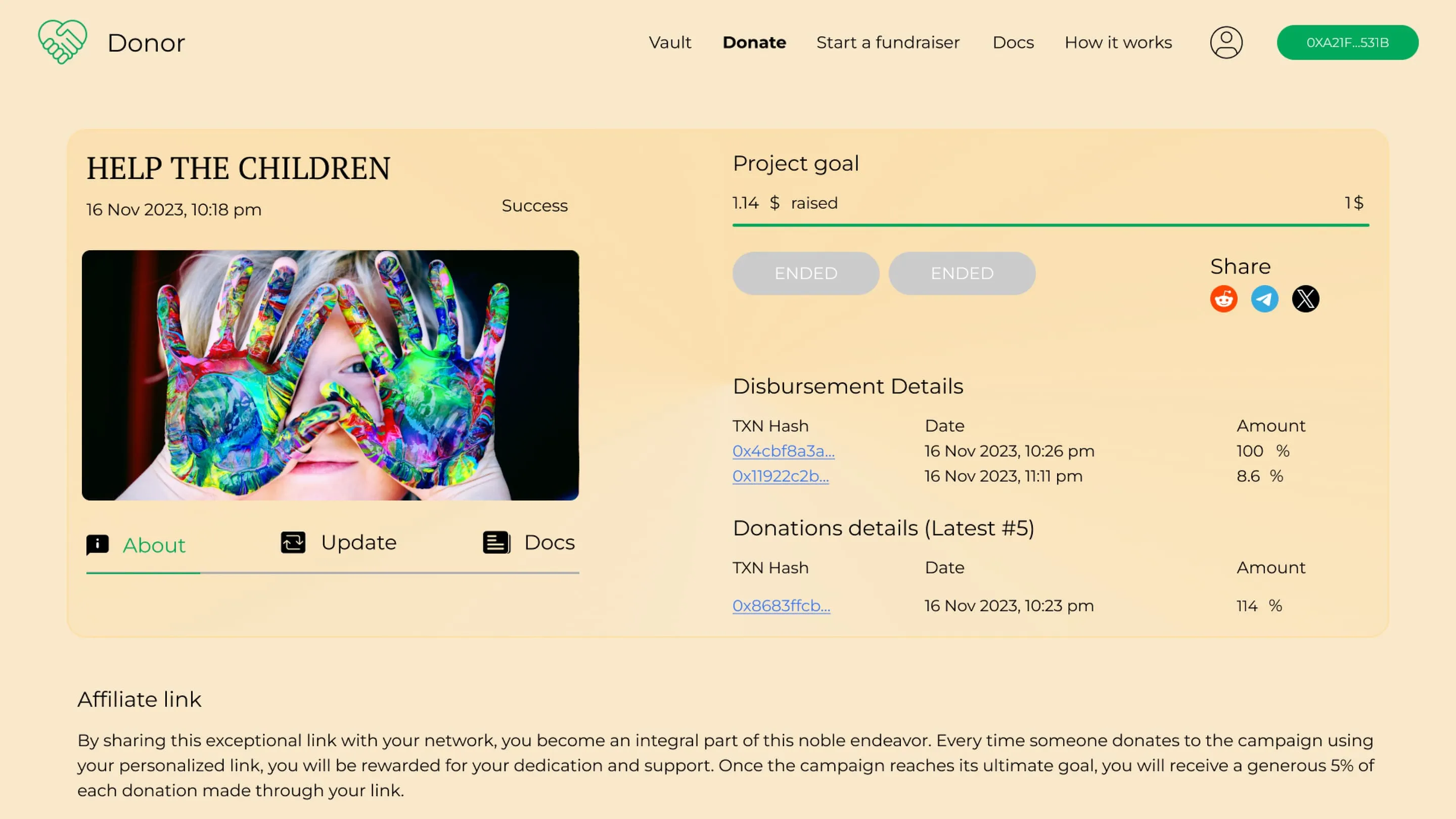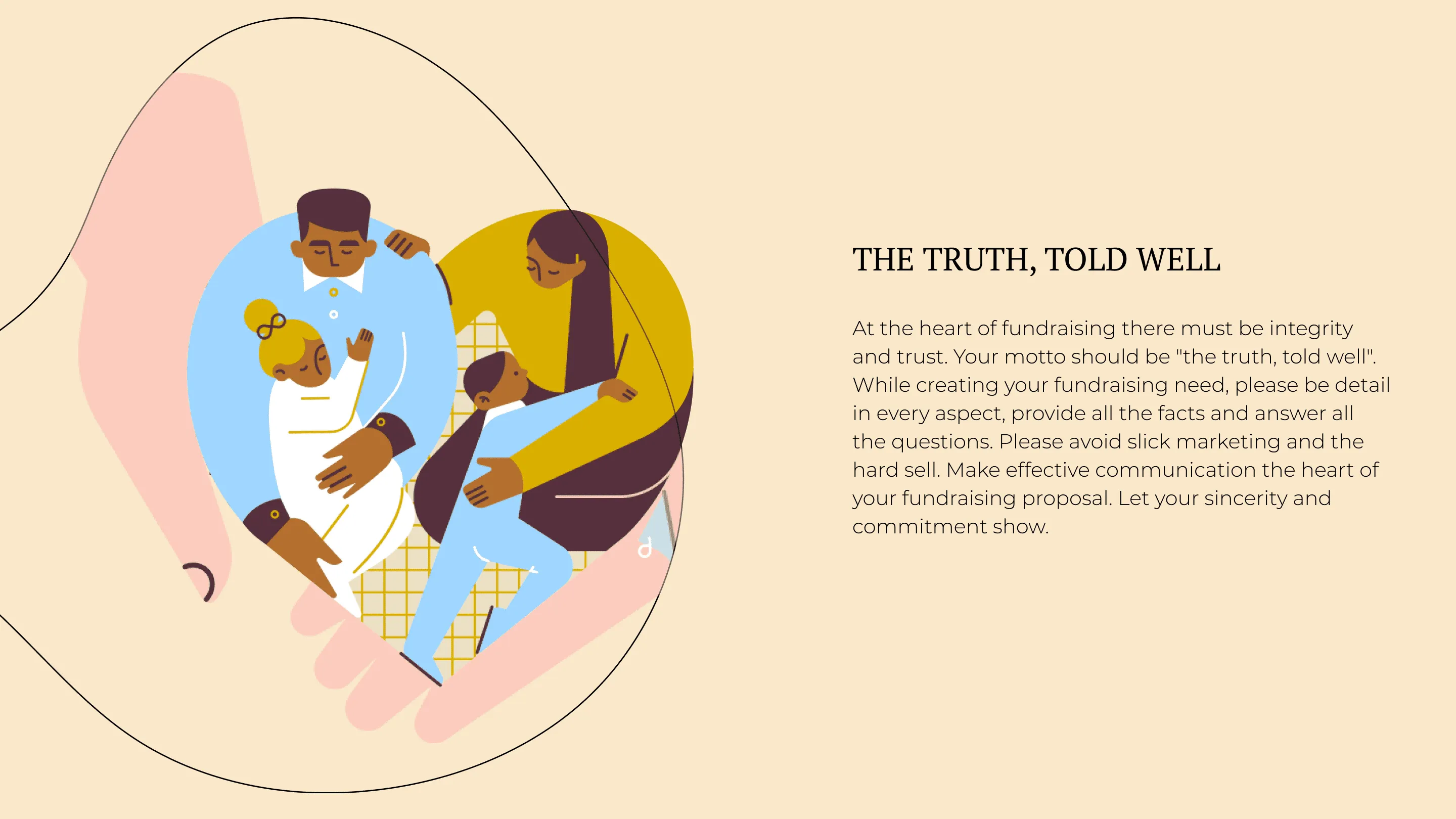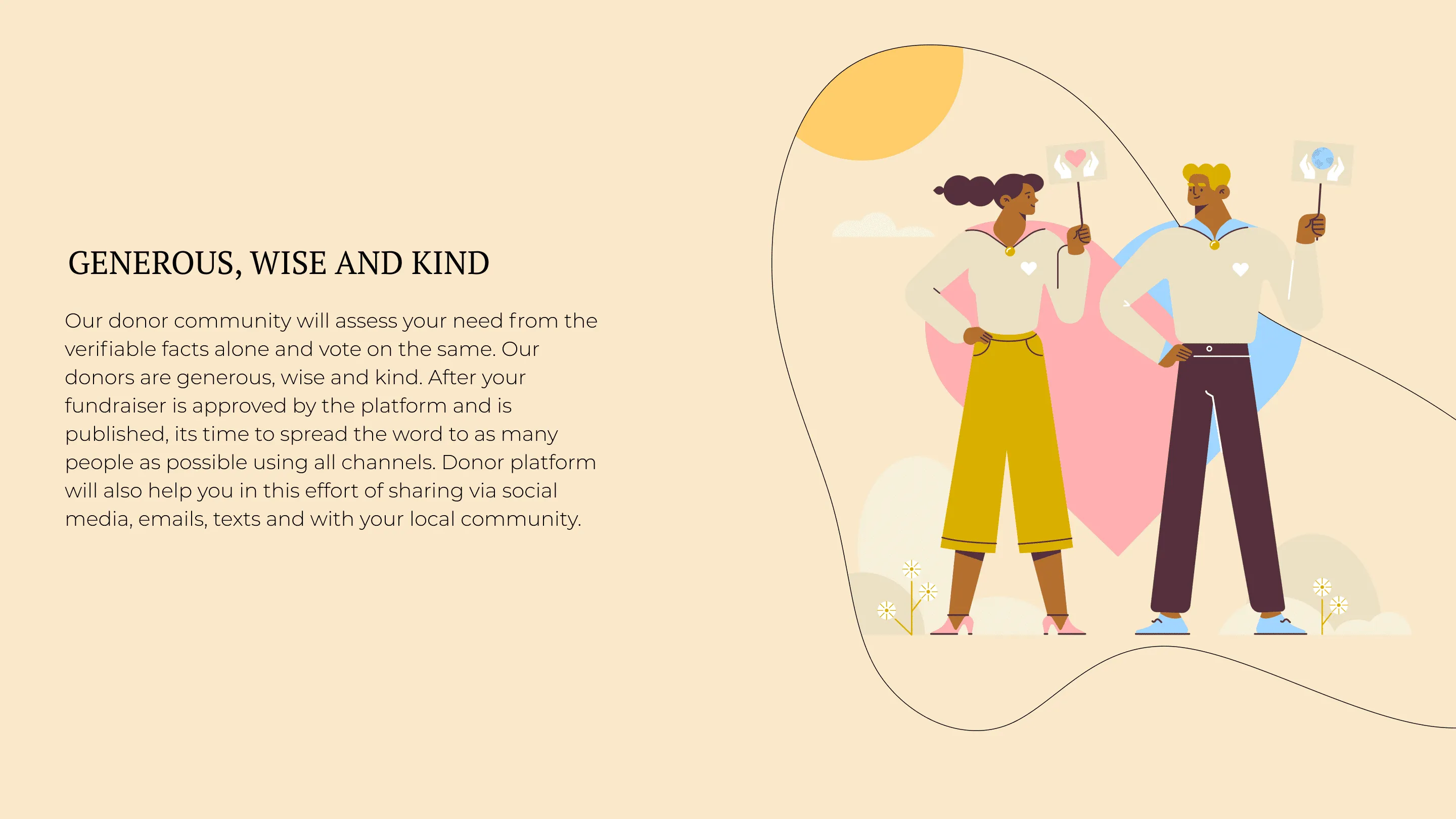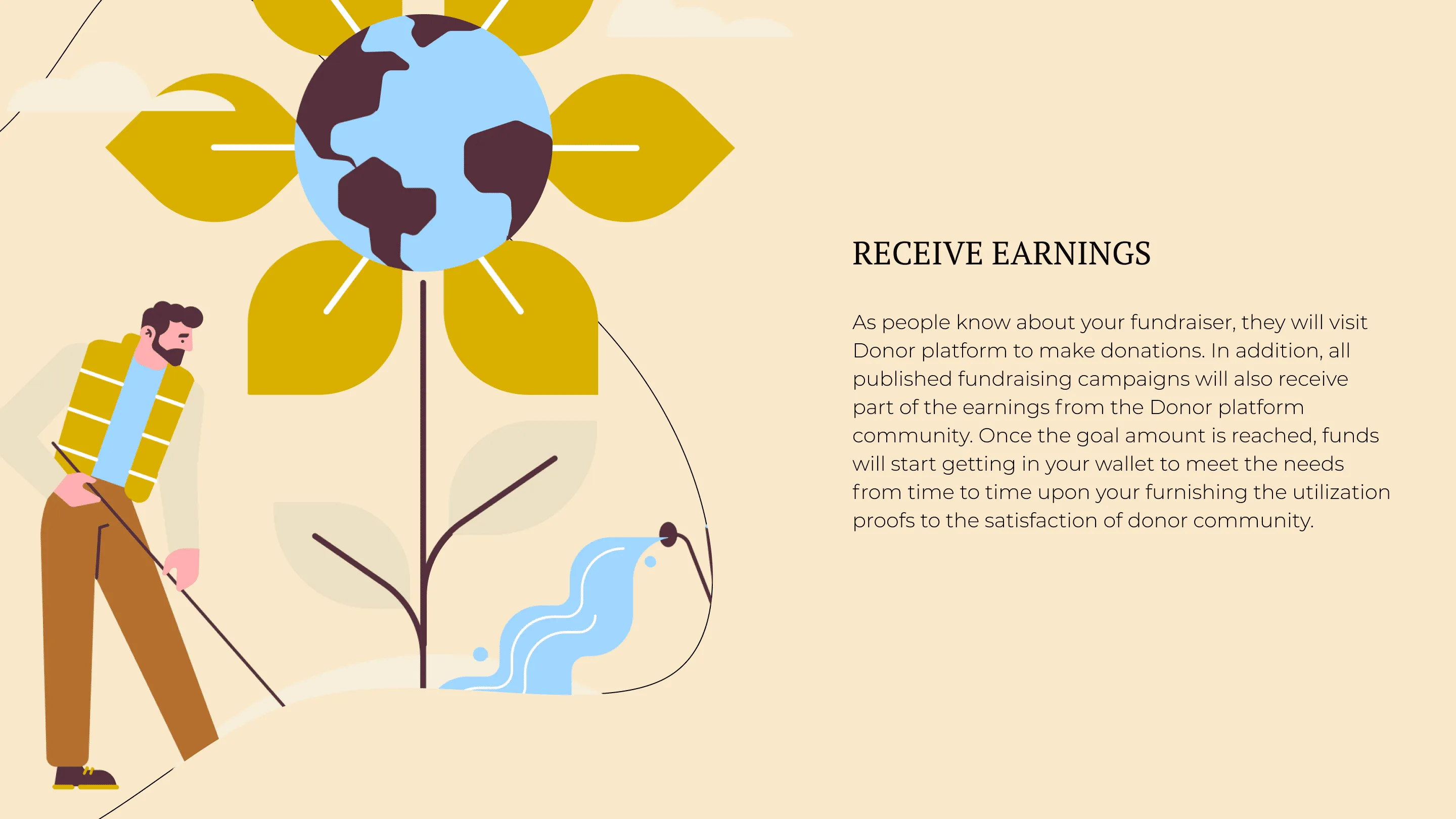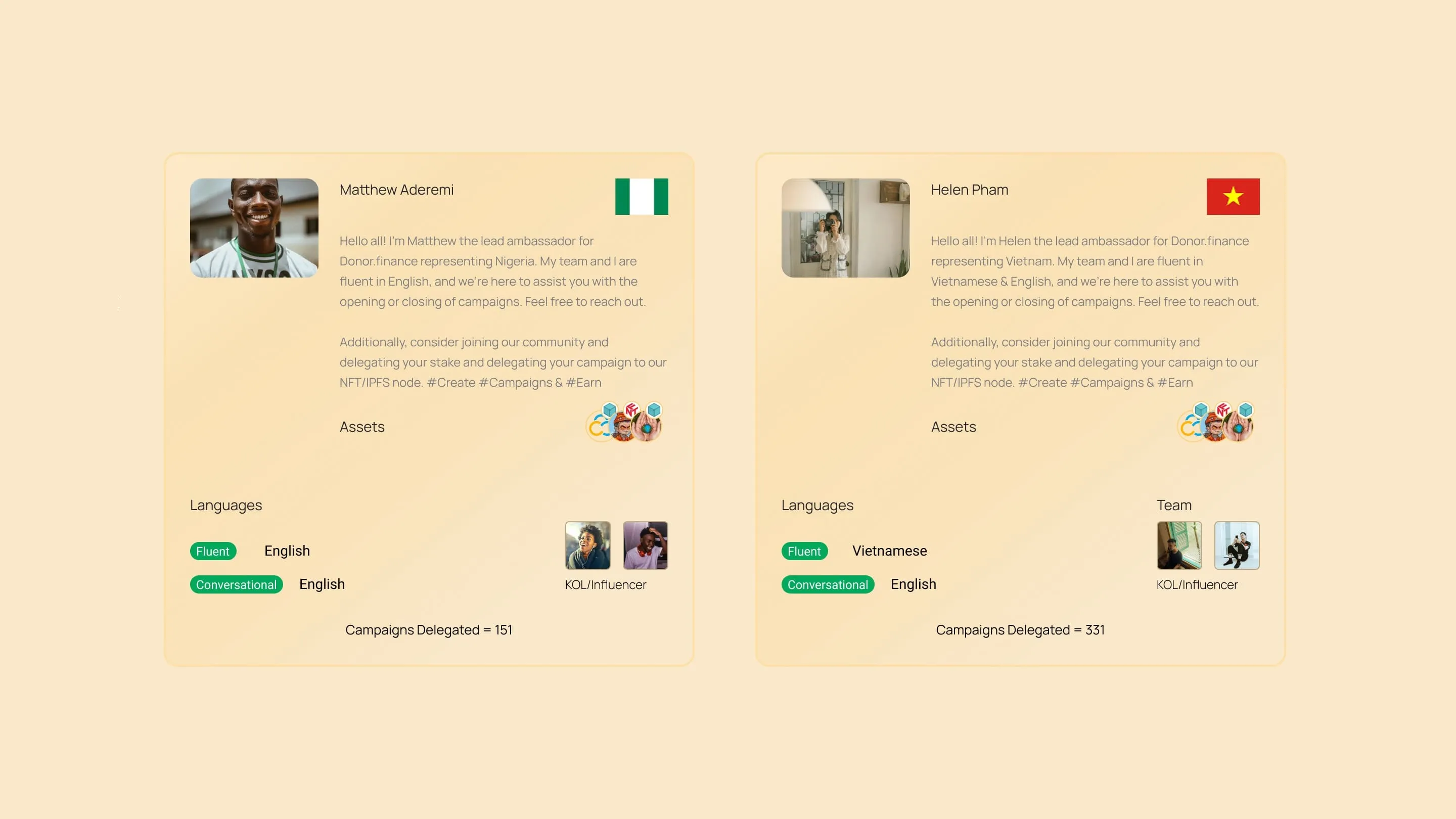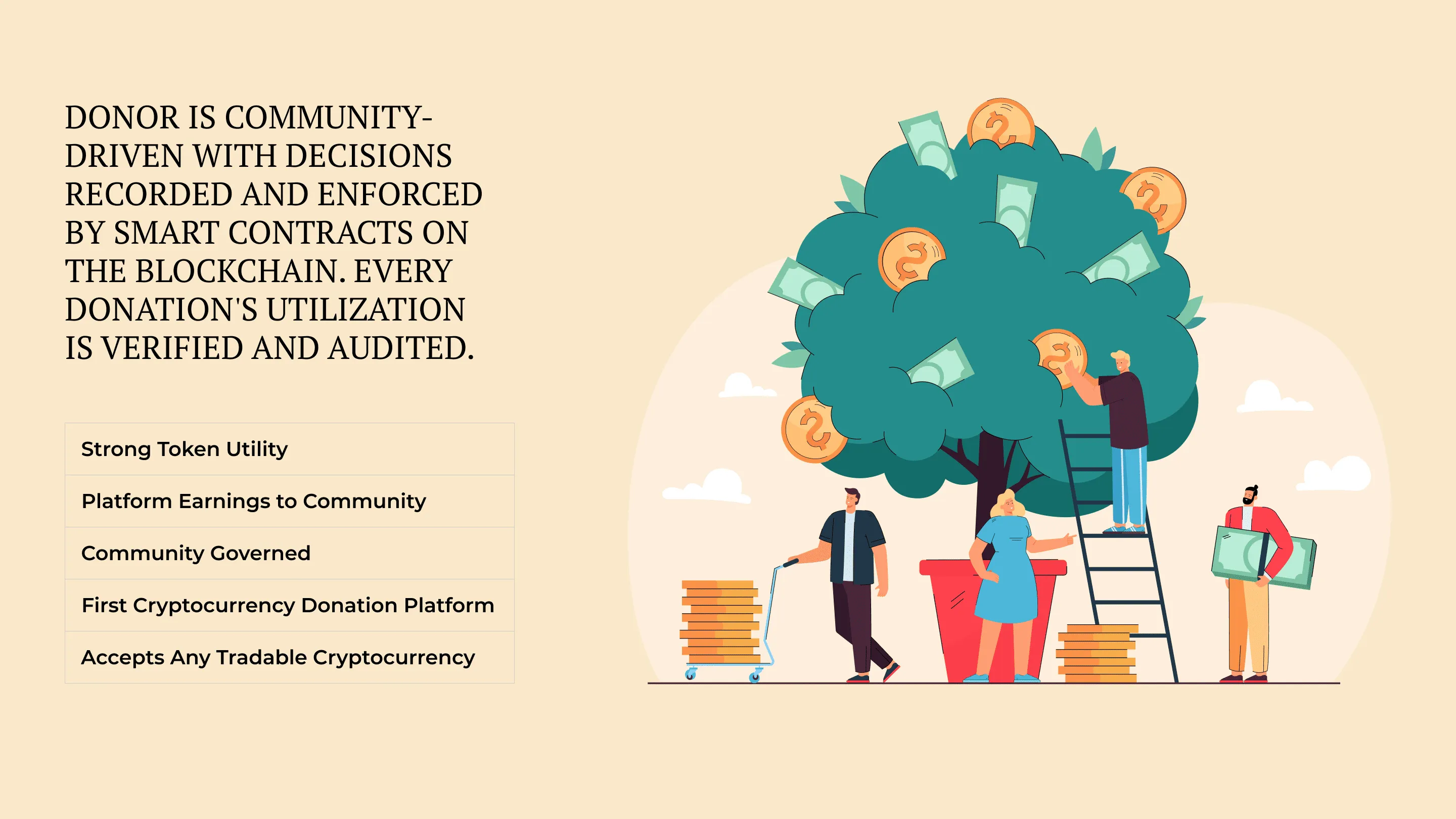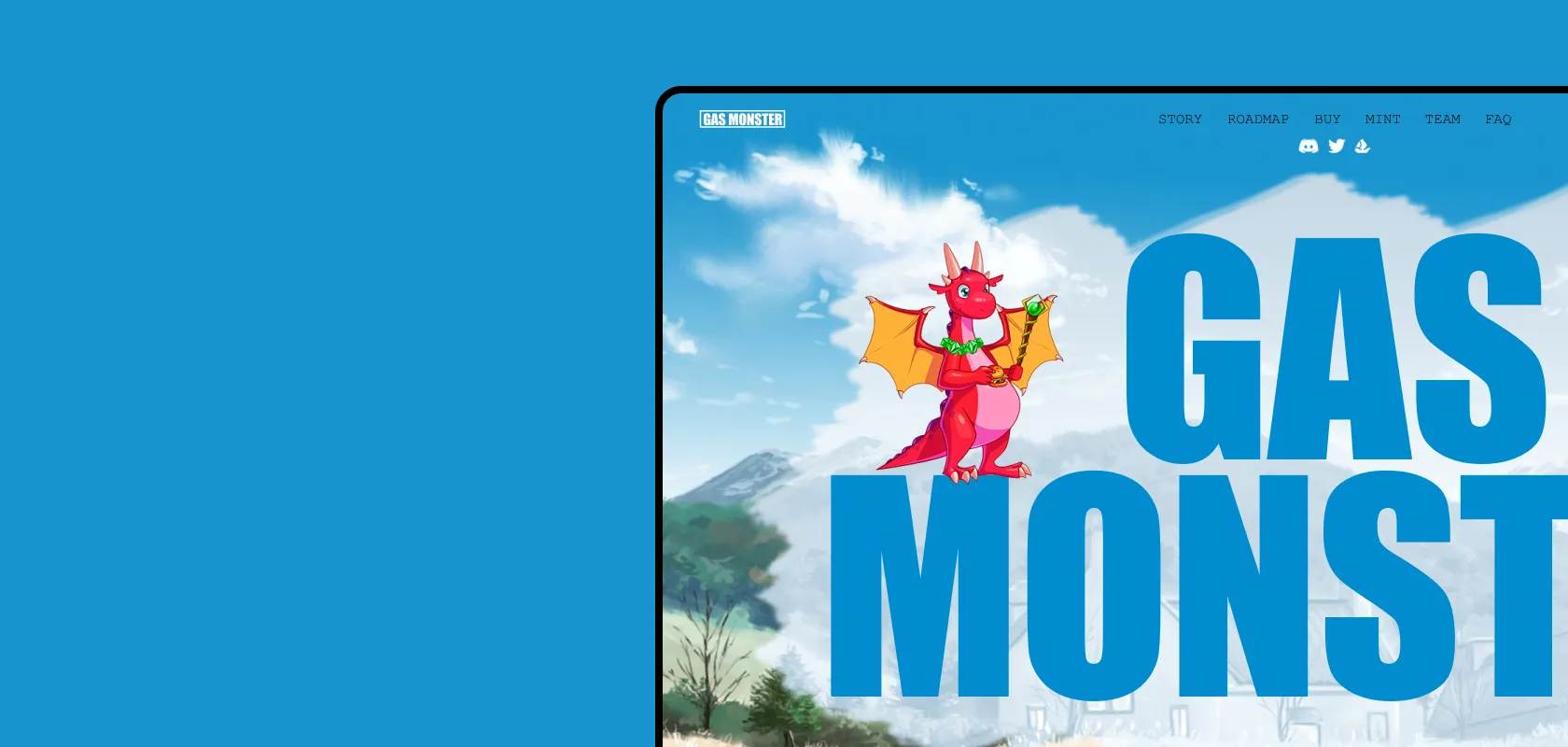Project History
Ron is a serial entrepreneur from Canada. He has several successful projects to his name: a restaurant, a marketplace, an ERP system. In his free time, he is passionate about blockchain and crypto, and he manages a YouTube channel with 12,000 subscribers called TechTipsToGo. Currently, he has several businesses, but he wants to spend more time with his children and family. If he's going to undertake projects, they should be meaningful, something he can be passionate about!
That's where Ron's meeting with Vamsi, another serial entrepreneur, comes in. Together, they came up with a project that would become their life's work - Donor, or Donor Finance. It's a blockchain-based charitable platform that provides donors with passive income opportunities.
